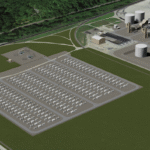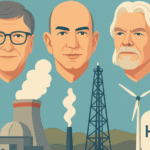Introduction
As the global population continues to grow, ensuring a food-secure future has become a pressing concern. The agriculture sector plays a crucial role in addressing this challenge, and sustainable agriculture practices are becoming increasingly important. In this article, we will explore the policy options for a food-secure future, highlighting the key issues, challenges, and potential solutions.
The State of Sustainable Agriculture
Sustainable agriculture is not just a buzzword; it is a critical component of a food-secure future. The benefits of sustainable agriculture are numerous, including:
- Environmental protection through reduced chemical use and conservation of natural resources
- Improved food security through increased crop yields and biodiversity
- Economic benefits through reduced costs and increased profit margins
- Animal welfare and social benefits through fair labor practices
Challenges to Sustainable Agriculture
Despite the benefits, sustainable agriculture faces significant challenges, including:
- Infrastructure and logistics constraints, such as limited access to markets and transportation
- Lack of training and education for farmers
- High costs and limited access to credit
- Climate change and its impact on crop yields and pest management
Policy Options for a Food-Secure Future
To overcome these challenges, policymakers, farmers, and stakeholders must work together to implement effective policy options. Some potential solutions include:
Supporting Small-Scale Farmers
Small-scale farmers are critical to sustainable agriculture, but they often face significant challenges. Policy options to support them include:
- Access to credit and training
- Market access and fair prices
- Extension services and technical support
Farm-to-Table Approaches
Fresh, locally grown produce is a key component of sustainable agriculture. Policy options to promote farm-to-table approaches include:
- Urban agriculture initiatives and community gardens
- Support for local food systems and farmers’ markets
- Food waste reduction and recycling programs
Climate-Smart Agriculture
Climate change is a significant threat to agriculture, but climate-smart agriculture can help mitigate its impact. Policy options include:
- Climate-resilient crop and animal breeding
- Sustainable water management and irrigation practices
- Agricultural extension services and training
Conclusion
Sustainable agriculture is not just a goal, but a necessity for a food-secure future. By implementing effective policy options, including supporting small-scale farmers, promoting farm-to-table approaches, and adopting climate-smart agriculture, we can ensure a food-secure future for generations to come.
FAQs
What is sustainable agriculture? Sustainable agriculture is an approach to agriculture that prioritizes environmental, social, and economic sustainability.
What are the benefits of sustainable agriculture? The benefits of sustainable agriculture include environmental protection, improved food security, economic benefits, and animal welfare and social benefits.
What are the main challenges to sustainable agriculture? The main challenges to sustainable agriculture include infrastructure and logistics constraints, lack of training and education, high costs and limited access to credit, and climate change.
What are some policy options for a food-secure future? Some policy options for a food-secure future include supporting small-scale farmers, promoting farm-to-table approaches, and adopting climate-smart agriculture.

.png?w=150&resize=150,150&ssl=1)
.png?w=150&resize=150,150&ssl=1)



.png?w=150&resize=150,150&ssl=1)